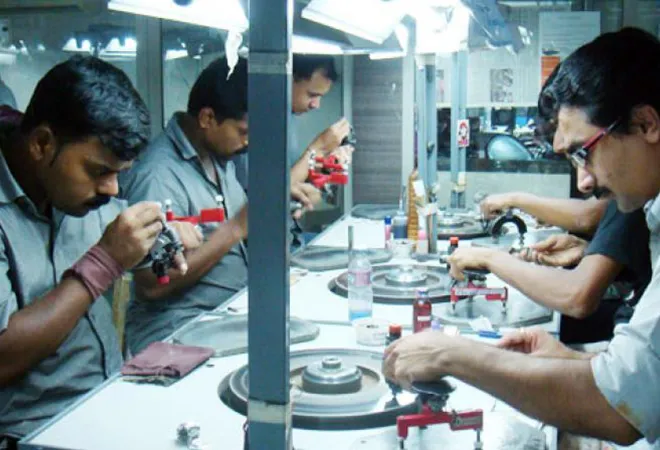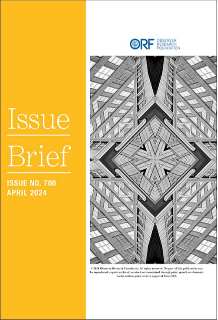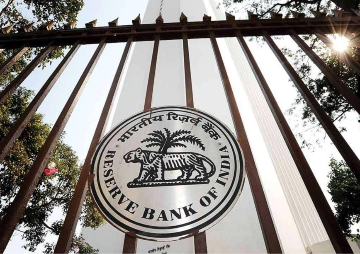
The case of India’s education and skilling enterprise stands in stark contradiction to Aristotle’s words. On the one hand, there is a glut of engineers, MBA holders and graduates from other streams of education, who remain unemployable in, ironically, one of the world’s fastest growing economies. On the other hand, the currently imparted education and skills training appear to fall short of inculcating the resilience needed to cope with economic downturn and rapid technological change.
What are the probable steps to ameliorate education and/or tackle skill crisis besetting India. Although this issue continues to gather wide attention and be discussed quite extensively, there are some related points, which have not received enough thought and consideration.
The unemployability of the educated workforce in India translates into the following numbers:
| < style="color: #000000">Educational Attainment |
< style="color: #000000">Level of Unemployability (in percentage) |
| < style="color: #000000">B.Pharma |
< style="color: #000000">52 |
| < style="color: #000000">Polytechnic |
< style="color: #000000">67 |
| < style="color: #000000">MCA |
< style="color: #000000">56 |
| < style="color: #000000">ITI |
< style="color: #000000">71 |
| < style="color: #000000">B.Sc |
< style="color: #000000">66 |
| < style="color: #000000">B.Com |
< style="color: #000000">66 |
| < style="color: #000000">B.A. |
< style="color: #000000">63 |
| < style="color: #000000">MBA |
< style="color: #000000">61 |
| < style="color: #000000">Engineering |
< style="color: #000000">48 |
(Source: India Skill Report 2018, Wheebox)
The India Skill Report 2018, published by Wheebox, informs us that unemployability across all educational domains stands at 54.4 percent. These figures reflect the skill deficit incapacitating the nation’s workforce. Agencies undertaking the assessment of employability are stunned by the abysmally poor performance on general aptitude tests and ignorance about basic facts. An alarmingly large subset of newly graduated engineers demonstrates a worrisome lack of basic programming skills. This skill gap is an outcome of outdated curriculum, poorly trained faculty, and, flawed teaching and learning pedagogy.
There are two dimensions to the problem of skill mismatch in India. First, education in India is disconnected from the benchmark of the industry and the expectations of employers, accentuating the problem of unemployment in the country.
Second, skill mismatch has led to under-utilisation of education and skill. Following rejection for jobs which the highly educated thought they were suited for, they are increasingly applying for openings that require a lower educational level. We have heard of graduates applying for clerical positions that demand higher secondary education. In recent times, this job crunch has compelled even Ph.D. holders, let alone postgraduates, to consider openings for blue collar jobs. Since employers are likely to hire those with higher levels of education, those who are ideal for these jobs in that their qualification is just adequate, neither more nor less, are crowded out. Depriving the latter of what they truly deserve is indeed disconcerting. This phenomenon also entails a lower return on the investment in higher education and the lost return represents a deadweight cost for the investor. In the Indian context, the investment takes the form of subsidies and the deadweight cost the wastage of taxpayers’ money.
The world we live in is exploding with ideas and possibilities originating in the interplay between technological, physical and biological realms. When the forces of globalisation act upon these ideas and possibilities, we arrive at our reality of today and, presumably, of the foreseeable future. A nation which aspires to carve out its niche in this landscape has to be quick and dynamic; it has to constantly evolve and reinvent itself in the face of change so as to be able to leverage opportunities that accompany such change. While humans are the agents of change, education is the workhorse of progress and the architect of a nation. If India chooses to be lethargic about dealing with the challenges that confront its educational and skilling system, it runs the risk of falling behind and being rendered irrelevant in the global context.
Countries with the largest ageing population in the world include Japan, Germany, Italy and Greece. India, on the other hand, is fast approaching a demographic sweet spot, soon to become the youngest country of the world. A well-documented fact about the consequences of an ageing nation is the negative effect such ageing has on the economic growth of that nation. Ageing entails a reduced labour supply and lowered productivity which, in turn, imply decline in investment and reduced incomes. The current global demographic profile, therefore, represents a significant economic opportunity for India’s working-age population. India’s demographic dividend could be mobilised to sustain the economic growth of ageing nations simultaneously boosting India’s remittance economy. Unfortunately, India appears ill-prepared to step up to this opportunity.
The fourth Industrial Revolution (4IR) is upon us and concerns not only about loss of jobs following automation, but also about the uncertainty and unpredictability accompanying the 4IR. Circumstances could have been different in India if our educational and skilling system could stand tall in the light of global standards. The 4IR is, after all, a product of human genius, creativity and imagination; and for inventors, innovators, researchers, and tech experts of the world, it represents a golden moment in the chapter of technological progress. Yet, there are many for whom the 4IR would bring challenges, even if their education ticks the right boxes. Nevertheless, as emphasised by the World Development Report 2019, published by the World Bank, quality education empowers one to adapt well to technological disruptions. Education that fosters fundamental and generic skills such as critical thinking, logical, analytical and computational abilities, creativity and curiosity is truly an ornament in prosperity and a refuge in adversity as Aristotle had propounded.
The Skill India mission, despite all the right intentions, has faltered in its implementation and has failed to reform the vocational education/training (VET) system. The goal of aligning the system with employer expectations and requirements is indeed the need of the hour. But why are these initiatives confined to the VET system? There have been no systematic efforts to achieve congruence between the BA, B.Com, B.Sc, engineering, MBA and other such courses, and the needs of the industry. There is a crying need to map the skill requirements of the Industry and to review whether existing academic and skill programmes cater to these requirements. We need to modify policy to formally recognise employers as important stakeholders in formulating new and revising existing educational courses. In fact, it must be clearly specified a priori which of the job roles, existing or to be created in the labour market in the future, will hire graduates being produced by our educational system.
There is frenzy in India about becoming engineers and, that too, to land a government job. Apart from those who covet civil services, a large number of graduates from IIT prefer the private sector to end up working in the financial and FMCG sectors. Overqualified engineers end up displacing those who are aptly qualified for such jobs rendering them unemployed. This is also true of MBA graduates. This labour market anomaly needs correction.
An uninformed demand for engineering and management education has led to the proliferation of institutions imparting these degrees in every pocket of India. There has to be a reasonable correspondence between the number of seats and job openings; so that the glut of overqualified graduates which crowds out the aptly qualified persons begins to diminish from the job market. This calls for regulating the number of engineering and management institutions in the country. We also need to strengthen existing and establish new effective channels for flow of information that creates awareness among the general public about new education and employment opportunities both in India and abroad; how fields such as engineering and management have reached the point of saturation, qualification requisites etc. Such information enables informed and sound education and career decisions.
In India, the growing trend of perceiving education in isolation from skill and vice-versa has obscured the indispensable relationship between the two; for what is education that does not impart skill and what is skill if you are not educated enough to apply it effectively? This trend has been reinforced by creating separate union ministries for dealing with issues of education and skilling. Institutions like ITIs that impart vocational education are treated as entities completely detached from institutions of formal education. Talks about establishing skill universities that are divorced from the conventional ones are also doing the rounds. The dominant narrative endorses a narrow and untenable construal of skill; in that skill refers to the requisites which are exclusive to particular job roles. This notion of skill is also reflected in the design of the Skill India mission.
Every individual has the right to aspire to become an asset, not only to the nation, but also to the world and, that too, in all circumstances. Skill, when narrowly conceived as above, can only guarantee employability, not sustainable employability, as a skill of today is prone to become redundant tomorrow. Skills which ensure employability can be an ornament in prosperity, not a refuge in adversity. Skills that guarantee sustainable employability can perform both these roles.
An example of such skills would be those that enable people who have lost their jobs to upgrade their skills to become employable in the new environment. It is necessary to ensure universal access to the fundamental and generic skills mentioned earlier. We need to incorporate components of formal education into vocational training, while giving practical exposure to students of formal education. Furthermore, we should facilitate an interdisciplinary exchange of ideas and information as well as synergies between formal education and vocational training which not only ensure survival, but also success, in an ever-changing globalised world.
The views expressed above belong to the author(s). ORF research and analyses now available on Telegram! Click here to access our curated content — blogs, longforms and interviews.




 PREV
PREV


